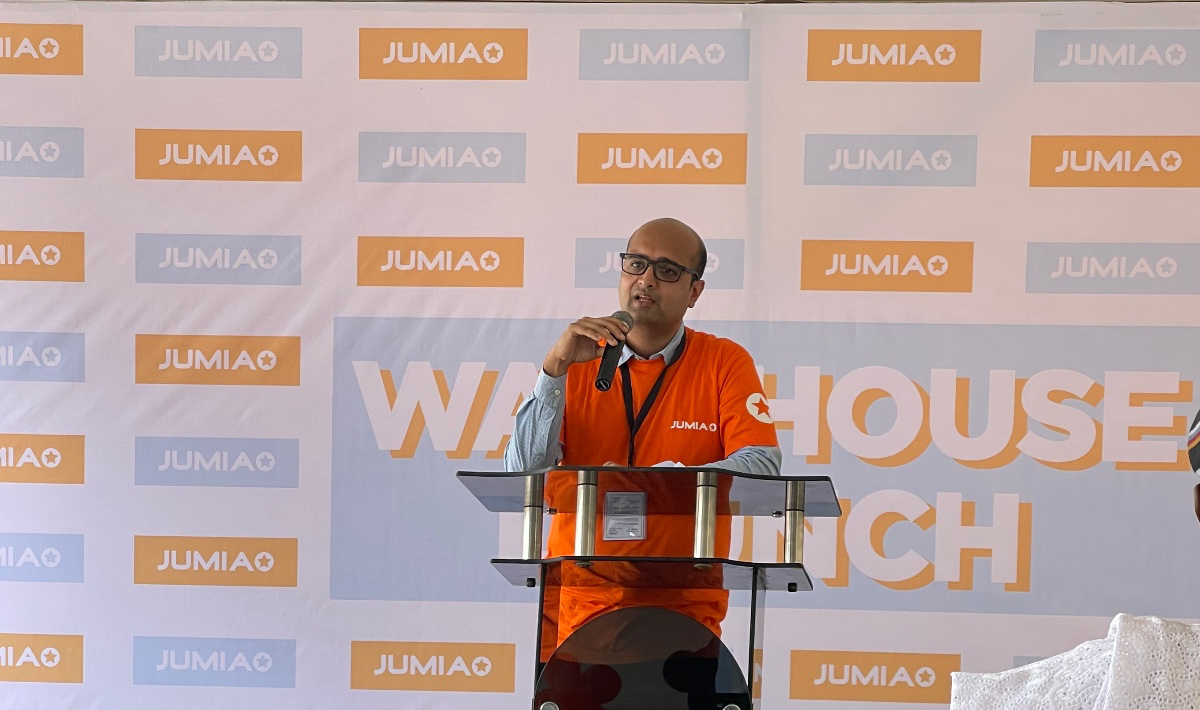Jumia, a prominent e-commerce platform in Nigeria, officially inaugurated its new integrated warehouse and logistics network facility in Lagos.
Sunil Natraj, CEO of Jumia Nigeria, thanked the Nigerian people—especially their partners, suppliers, and advertisers—during his welcome address. Nigeria was hailed as Jumia’s “home” and “main bedroom” as he emphasised the country’s potential.
Read also: Jumia Nigeria to expand, consolidate-warehouses into one depot
Why Jumia’s launch is impressive
According to Natraj, Jumia invests heavily in its supply chain to make it more agile, quick, and proactive. Thanks to the new warehouse in Isolo, Lagos, which spans over 30,000 square metres and has 17,000 square metres of covered storage, Jumia will be able to expand its operations and provide every Nigerian with a broader selection of affordable products.
Mrs Folashade Ambrose-Medebem, the Commissioner for Commerce, Cooperatives, Trade and Investment, commended Jumia’s journey and impact on Nigeria’s e-commerce industry on behalf of Governor Babajide Olusola Sanwo-Olu of Lagos State. She reaffirmed Lagos’ commitment to supporting businesses and growth.
According to her, this is a daring economic move towards the goal of faster, more reliable, and cheaper delivery of goods, which is essential for the expanding needs of the e-commerce industry. Initiatives like these, which boost the economy and create jobs for our people, have their proud supporters. Our local workforce will be even more robust thanks to the warehouse’s ability to generate many jobs and opportunities for skill development.
How Jumia remains applicable to Nigerian
During the ribbon-cutting ceremony, Natraj reaffirmed Jumia’s commitment to providing Nigerians with authentic, reasonably priced goods without hidden fees. He reassured them that Jumia’s supplier screening process is thorough.
According to Natraj, competition is good for Jumia because it increases the company’s credibility and gives customers more options to compare and choose from. Jumia is well-prepared to handle the demands of the booming e-commerce sector in Nigeria thanks to its investments in the supply chain and expansion plans.
The new facility will improve Jumia’s supply chain capabilities, allowing the company to serve more customers across Nigeria faster and scale operations up quickly. First-mile transportation between different sorting centres and warehouses will no longer be necessary, dramatically reducing carbon emissions.
Read also: E-commerce Copia to shut down due to unprofitability
According to Sunil Raj, CEO of Jumia Nigeria, the company has revolutionised online shopping in Nigeria by bringing together customers and brands. People in outlying places who didn’t have many options when shopping online now have more options.
Jumia will be able to fulfil its mission of being the go-to online shopping destination for Nigerians thanks to the investments made in its supply chain through the new warehouse.
Customers can rest assured that the products sold on Jumia are of high quality and originality because the platform upholds good standards and projects an increase in job opportunities between 400 and 600.

